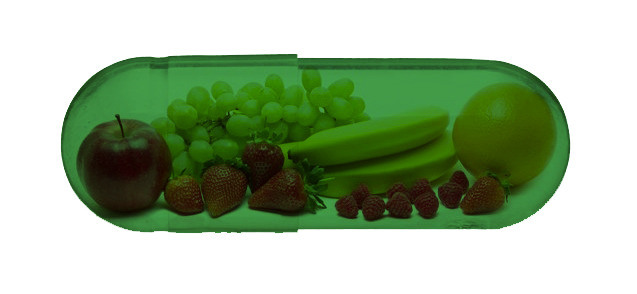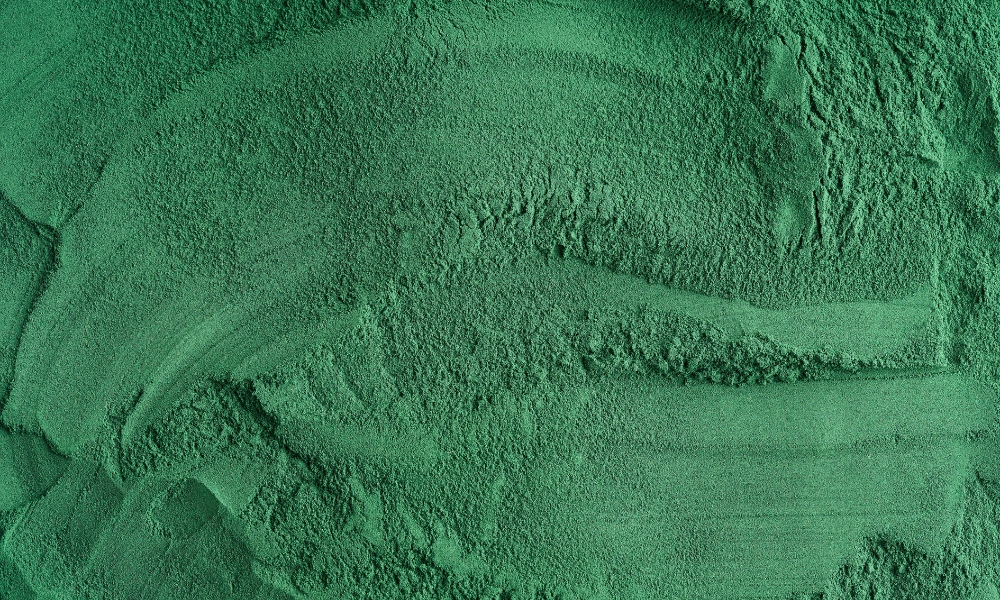Made with under the sun daily.
Made with under the sun daily.
Spirulina, a superfood that is recommended to consume daily and not just because the spirulina vitamins encapsulated with it. Fresh spirulina includes quality protein, an abundance of minerals and vitamins, amino acids and antioxidants. Spirulina encapsulates within it an extremely natural and rare combination of nutrients contributing to the health and feel vital and energetic. Therefore the ability to deal with various diseases and contributing to prevent them.
Vitamin A (Beta-Carotene), this vitamin is helping to neutralise toxins, participates in body growth processes, helps the immune system, the respiratory system and the visual system.
Vitamin B1, this spirulina vitamin contributes to improved concentration and attention, helps strengthen the musculoskeletal system and normal functioning of the nervous system and brain.
Vitamin B2, the vitamin is an essential contributor to body metabolism and energy production, helps hair and nail health and contributes to skin health.

Vitamin C is a vitamin that improves the immune system and helps during the recovery period of the body from diseases. It reduces the risk of developing heart disease, helps maintain oral health (gums and teeth) and contributes to the effective absorption of various minerals. Spirulina vitamins C also participates in processes of building tissues and maintain skin health and protecting the visual system. Vitamin C is also a powerful antioxidant that helps treat free radicals.
Vitamin E helps to prevent the accumulation of toxic fats in the bloodstream. It also contributes to the normal functioning of the heart and participates in preventing the formation of blood clots and keeps arteries healthy.
Vitamin K helps in the process of producing energy from proteins and fats and in the process of blood clotting.
Zeaxanthin, the Zeaxanthin while being a vitamin also belongs to the carotenoid family. Carotenoids are a group of organic pigments. Its colour is running between yellow and red. In humans, the carotenoids, zeaxanthin among them, is important for the health of eyes, skin, the digestive system, the immune system and various mucous membranes.
The carotenoids are used as powerful spirulina antioxidants and there are researchers pointing at them as helping significantly in preventing cancer.
| Vitamins | Activity example |
|---|---|
| Vitamin A Equiv. | Vitamin A has multiple functions: it is important for growth and development, for the maintenance of the immune system and good vision. |
| beta-carotene | β-Carotene is an organic, strongly-colored red-orange pigment abundant in plants and fruits (as above) |
| Lutein | The hypothesis for the natural concentration is that lutein helps keep the eyes safe from oxidative stress and the high-energy photons of blue light |
| Zeaxanthin | is one of the two primary xanthophyll carotenoids contained within the retina of the eye. Within the central macula, zeaxanthin is the dominant component, whereas, in the peripheral retina, lutein predominates. |
| Thiamine (B1) | Thiamine is used to treat thiamine deficiency which can prove fatal.[8] In less-severe cases, nonspecific signs include malaise, weight loss, irritability and confusion. |
| Riboflavin (B2) |
As a supplement it is used to prevent and treat riboflavin deficiency and prevent migraines. |
| Niacin (B3) | Medication and supplemental niacin are primarily used to treat high blood cholesterol and pellagra (niacin deficiency). Insufficient niacin in the diet can cause nausea, skin and mouth lesions, anemia, headaches, and tiredness |
| Pantothenic acid (B5) | Pantothenic acid is used in the synthesis of Enzymes (e.g. coenzyme A) |
| Vitamin B6 | Vitamin B6, is involved in many aspects of macronutrient metabolism, neurotransmitter synthesis, histamine synthesis, hemoglobin synthesis and function, and gene expression. |
| Folate (B9) | Folic acid is used to treat anemia caused by folic acid deficiency. Additinally it healps treat cases in pregnancy, fertility, heart disease, stroke, cancer etc.. |
| Vitamin C | As a supplement it is used to treat and prevent scurvy, cancer prevention, cardiovascular disease, chronic diseases, common cold etc.. |
| Vitamin D | A diet deficient in vitamin D in conjunction with inadequate sun exposure causes osteomalacia (or rickets when it occurs in children), which is a softening of the bones. |
| Vitamin E | Vitamin E has many biological functions, including its role as a fat-soluble antioxidant. |
| Vitamin K | Without vitamin K, blood coagulation is seriously impaired, and uncontrolled bleeding occurs. Preliminary clinical research indicates that deficiency of vitamin K may weaken bones, potentially leading to osteoporosis, and may promote calcification of arteries and other soft tissues. |

Founded in Southeast QLD and located on Certified Organic farmland, we are an Australian-made Fresh Spirulina commercial farm. We are subject to the Australia New Zealand Food Standards Code and produce fresh Spirulina using food-grade nutrients only, pay attention to the freshness and health of our spirulina.
You can visit us at our social media pages at facebook.com & instagram.com
Founded in Australia, Southeast QLD, Fresh Spirulina is a local biotech health company conducting research and innovation of micro & macroalgae as plant-based food products.
By appointment only
Monday - Friday: 08:00am - 16:30pm
Saturday - Sunday: Closed
'Let's Encrypt' SSL certificate installed on this website
*Disclaimer: Spirulina is Food, not drugs or medicine. Statements made, or products sold through this website, have not been evaluated by the Therapeutic Goods Administration (TGA) Australia. They are not intended to diagnose, treat, cure or prevent any disease. Read More »
All rights reserve © 2023, Fresh Spirulina Australia


Would you like to be notified when we start?



Thanks! You're on the list.
It's safe to close this popup now.